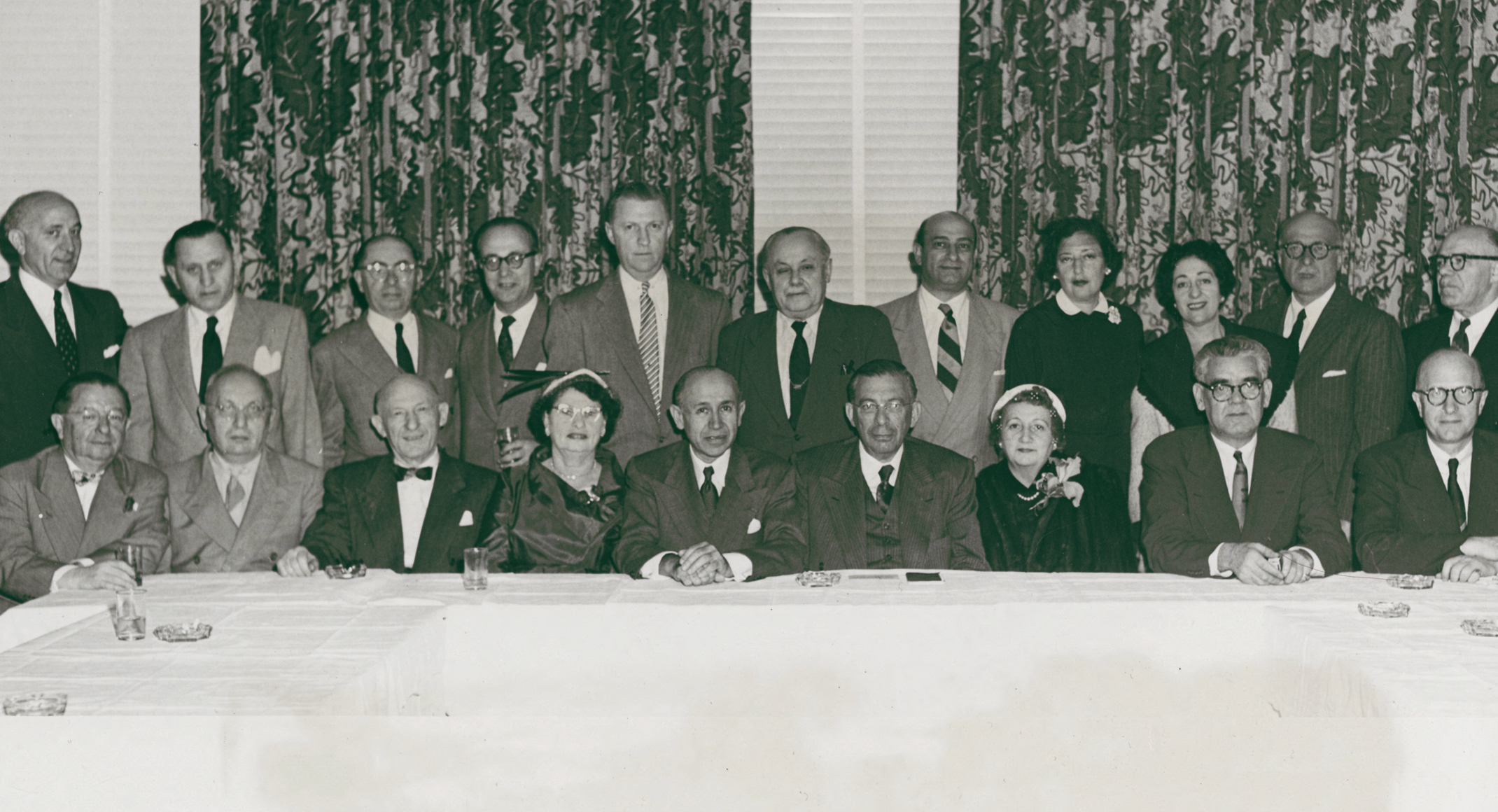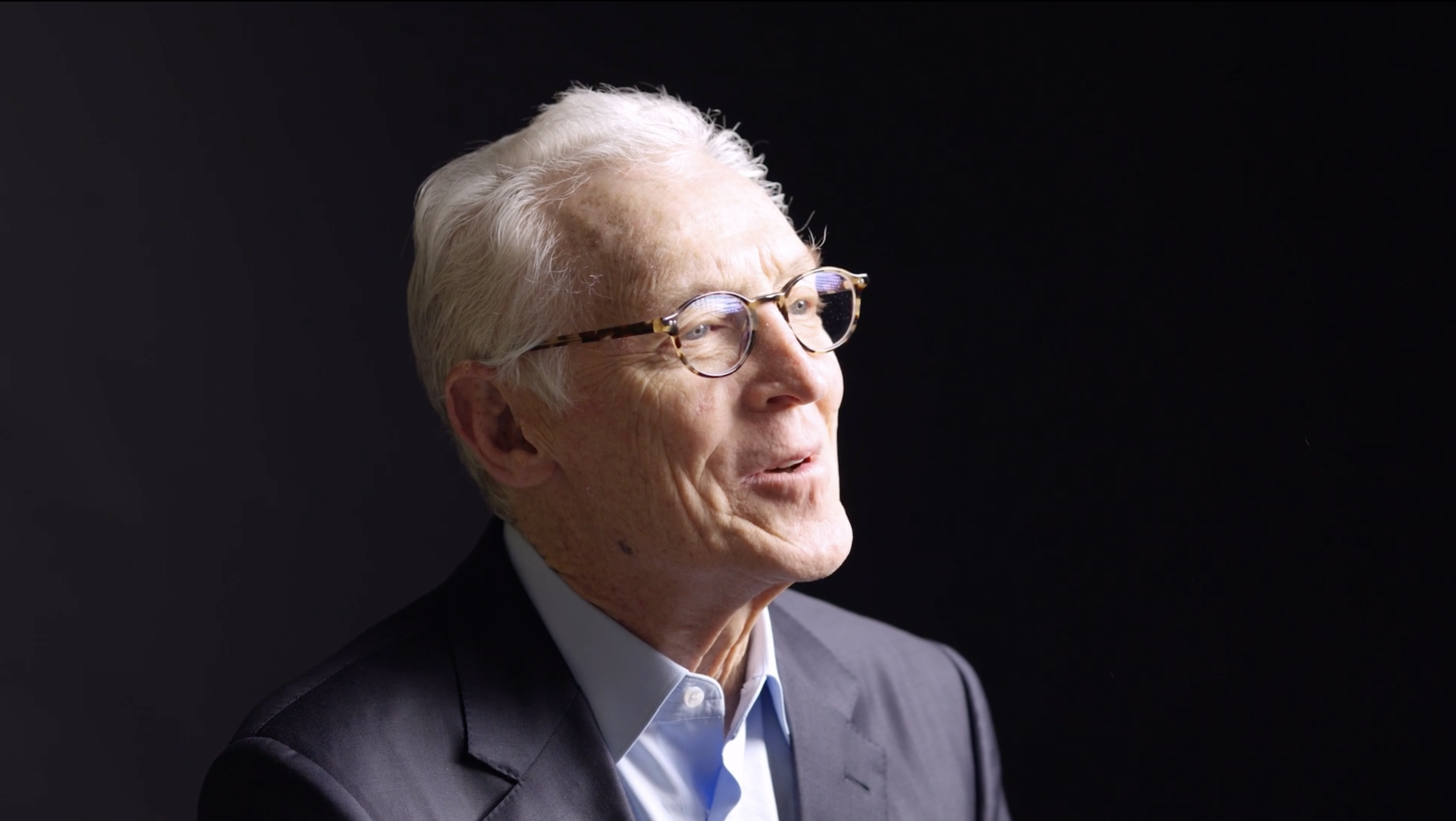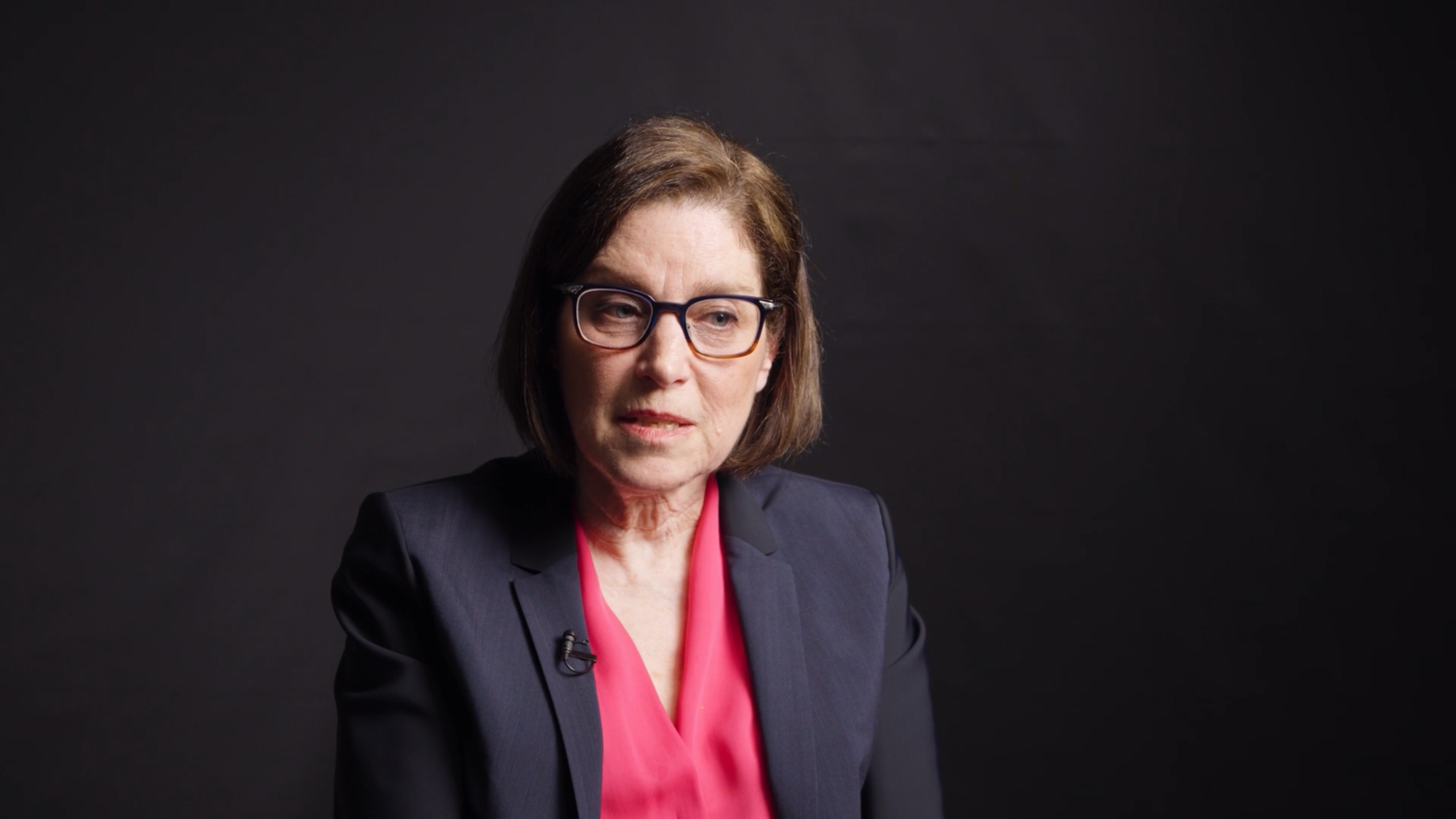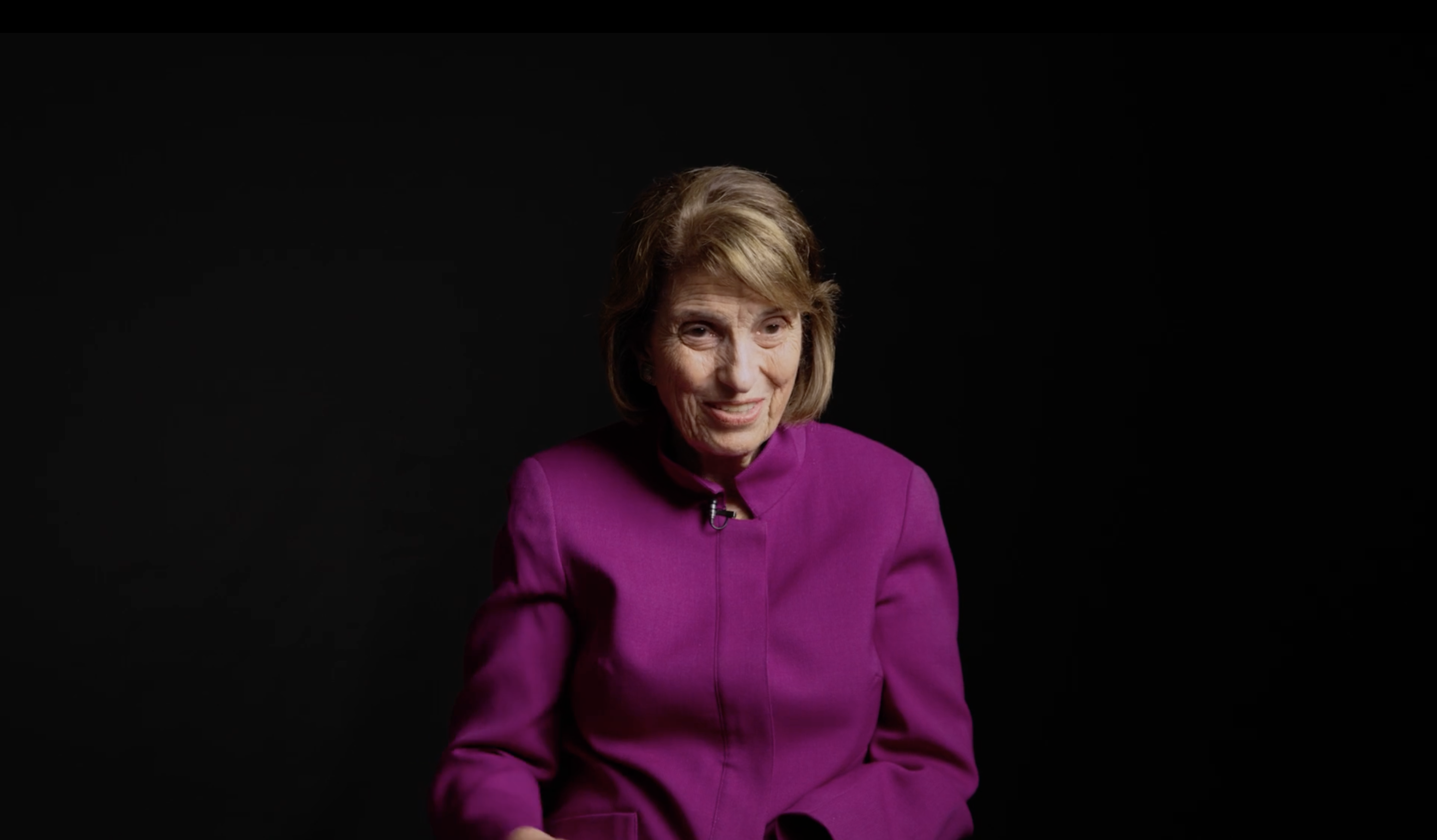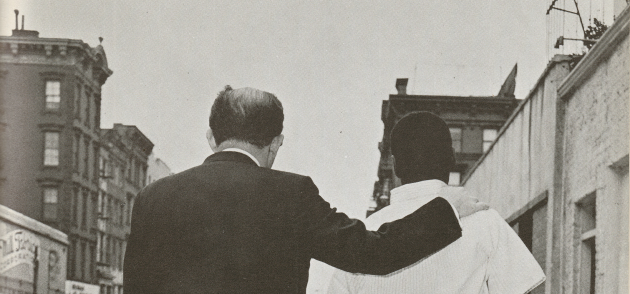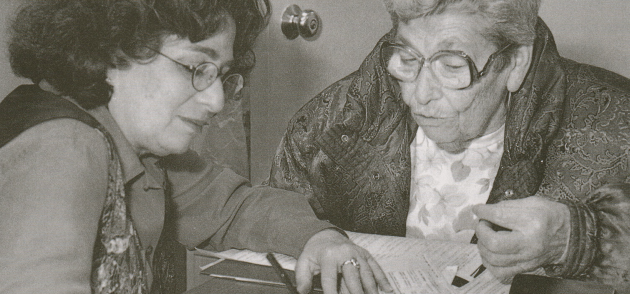The Jewish Board’s history as a social service provider is intimately intertwined with the rise of Jewish-led philanthropic organizations writ large. Just as the Jewish Board itself has grown through a series of mergers of smaller predecessor organizations, so has The Jewish Board’s largest private funder, UJA-Federation of New York, similarly grown through the merging of smaller organizations over the course of the latter 20th century.
Historically, United Jewish Appeal of Greater New York focused on financially supporting Jews in Europe and Israel during and after World War II, while the Federation for the Support of Jewish Philanthropic Societies of New York City was a much older organization that funded local initiatives. In 1986, the two merged to form UJA-Federation. The Jewish Board is the largest single agency grantee of UJA-Federation funds, and many Jewish Board trustees have served at both organizations (though never concurrently to avoid conflicts of interest). The combined flow of funding from public and private Jewish philanthropic sources has enabled The Jewish Board to simultaneously provide social services to New Yorkers of all background in addition to targeted services for Jewish New Yorkers. As the agency’s client based shifted towards serving non-Jews (see: Race & Racism), Jewish Board leaders have worked to balance these various funding sources and programmatic imperatives.
